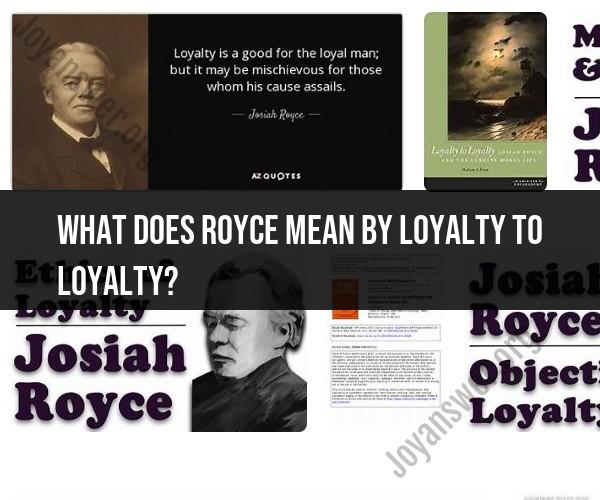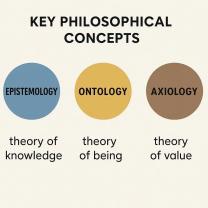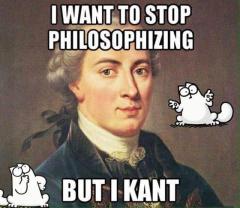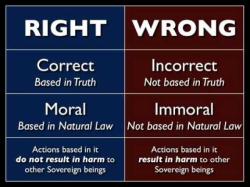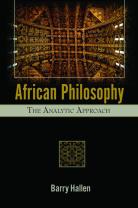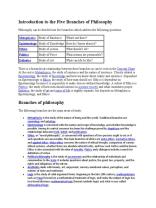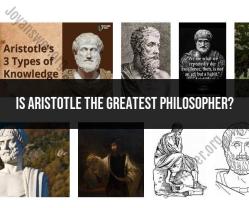What does Royce mean by loyalty to loyalty?
Josiah Royce's concept of "loyalty to loyalty" is a philosophical idea that explores the nature of loyalty and its ethical implications. Royce, an American philosopher and idealist, introduced this concept as a way of understanding the complex dynamics of loyalty in human relationships and moral decision-making. Here's an overview of what Royce means by "loyalty to loyalty":
Primary Loyalty: Royce acknowledges that people often have primary loyalties to specific individuals, groups, or causes. These primary loyalties can include loyalty to family, friends, a nation, an organization, or a set of principles. Primary loyalties are deeply personal and emotional commitments.
Secondary Loyalty: Royce's concept of "loyalty to loyalty" introduces the idea of being loyal not just to the specific object of one's primary loyalty but also to the very concept of loyalty itself. In other words, it involves a commitment to the principles and values that underlie loyalty, irrespective of the specific object of loyalty.
Ethical Perspective: Royce suggests that "loyalty to loyalty" serves as an ethical perspective. It encourages individuals to recognize the importance of loyalty as a moral virtue and a fundamental aspect of human relationships. Loyalty, in this context, is seen as a value in itself, regardless of whether it aligns with one's primary loyalty.
Balancing Conflicting Loyalties: Loyalty to loyalty can help individuals navigate situations where their primary loyalties may conflict. For example, if a person's loyalty to their family conflicts with their loyalty to their profession, "loyalty to loyalty" encourages them to consider the ethical principles underlying both loyalties and seek a balanced resolution.
Universal Application: Royce's concept suggests that loyalty is a universal ethical principle that transcends specific loyalties. It implies that loyalty, as a moral value, can be applied broadly to promote cooperation, understanding, and ethical behavior in society.
Critical Examination: "Loyalty to loyalty" encourages individuals to critically examine their loyalties and assess whether they align with ethical principles. It prompts self-reflection and moral reasoning.
Community and Solidarity: Royce believed that embracing "loyalty to loyalty" could contribute to building a more inclusive and compassionate community. By recognizing the importance of loyalty as a shared value, individuals can foster a sense of solidarity and mutual support.
In summary, Josiah Royce's concept of "loyalty to loyalty" emphasizes the ethical significance of loyalty as a fundamental value. It encourages individuals to consider loyalty not only in terms of specific commitments but also as a broader moral principle that promotes ethical behavior, understanding, and unity in society.
"Loyalty to Loyalty": Exploring Royce's Concept
Josiah Royce's concept of "loyalty to loyalty" is a complex and nuanced one. It is a call to be loyal to the process of truth-seeking and community-building, rather than to any specific individual, group, or ideology.
Royce believed that loyalty is essential for living a good and meaningful life. He also believed that loyalty should be dynamic and evolving, rather than static and rigid.
Royce's concept of loyalty to loyalty can be understood as having three key layers:
- Loyalty to oneself: This means being true to one's own values and beliefs, even when they are unpopular or challenging.
- Loyalty to others: This means being committed to the well-being of others, and to working together to build a better world.
- Loyalty to the truth: This means being committed to the pursuit of truth, even when it is difficult or inconvenient.
Royce believed that these three layers of loyalty are interconnected. When we are loyal to ourselves, we are better able to be loyal to others and to the truth. And when we are loyal to others and to the truth, we are better able to be loyal to ourselves.
Loyalty and the Layers Within: Royce's Perspective
Royce's concept of loyalty to loyalty can be seen as a call to be loyal to the process of becoming a better person and a better citizen. It is a call to be open to new ideas and perspectives, and to be willing to change our minds when presented with evidence.
Royce also believed that loyalty to loyalty requires us to be critical of our own beliefs and assumptions. We should always be willing to question our own loyalties, and to make sure that they are aligned with our values and with the truth.
Philosophical Inquiry: Royce's Notion of Loyalty to Loyalty
Royce's concept of loyalty to loyalty has been influential in a number of different fields, including philosophy, ethics, and education. It has been used to explore a wide range of topics, such as the nature of loyalty, the relationship between loyalty and truth, and the role of loyalty in community-building.
One of the key insights of Royce's concept of loyalty to loyalty is that loyalty should not be blind. We should be loyal to others, but we should also be critical of them. We should be loyal to the truth, but we should also be open to new ideas and perspectives.
Royce's concept of loyalty to loyalty is a challenging one, but it is also a rewarding one. It is a call to live a life of integrity and commitment, and to be part of building a better world.
Here are some additional thoughts on Royce's concept of loyalty to loyalty:
- Royce's concept of loyalty to loyalty can be seen as a call to be loyal to the process of becoming a better person and a better citizen.
- It is a call to be open to new ideas and perspectives, and to be willing to change our minds when presented with evidence.
- Royce also believed that loyalty to loyalty requires us to be critical of our own beliefs and assumptions.
- We should always be willing to question our own loyalties, and to make sure that they are aligned with our values and with the truth.
- Royce's concept of loyalty to loyalty is a challenging one, but it is also a rewarding one. It is a call to live a life of integrity and commitment, and to be part of building a better world.
